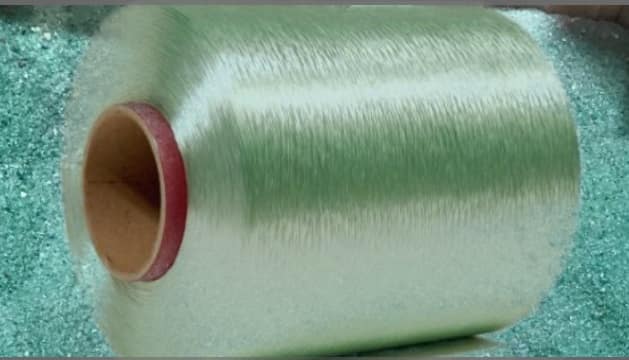Recycled polyester chemically recycled polyester - Arhive
Report notes surge in recycled polyester use Recycled polyester chemically recycled polyester

Source : apparelinsider
Victoria Gallagher
MILAN – Leading global apparel brands have notably ramped up the use of recycled polyester in their collections since signing a pledge in January.
US not-for-profit Textile Exchange has announced a collective 36 per cent increase by signatory companies following the launch of the rPet Challenge at the start of this year.
Adidas, Eileen Fisher, Gap Inc., H&M, IKEA, Lindex, Target and Timberland were among 45 brands to make the initial commitment, which was announced at last year’s Textile Exchange’s annual sustainability conference.Recycled polyester chemically recycled polyester
The commitment was tracked via participation in the Polyester Module of Textile Exchange’s annual Preferred Fibre and Materials Benchmark Survey, with the baseline usage published in the Textile Exchange Preferred Fibre and Materials Market Report, released last week.
The surge in usage, which sees signatories smash through their 2020 target of 25 per cent, suggests recycled polyester is increasingly becoming the preferable option for brands.
Indeed, the news follows a commitment made by Adidas earlier this year to transition to 100 per cent use of recycled polyester in all its products by 2024.
Talking to Apparel Insider about the results in Milan, Karla Magruder, Textile Exchange Board Member and sustainability consultant, suggested a strong belief system by brands to use more sustainable fibres.Recycled polyester chemically recycled polyester
“Companies look at their portfolio and if they are using a significant amount of a fibre they want to use a preferred version and, today, recycled polyester is the preferred version alternative to virgin,” she told us.Recycled polyester chemically recycled polyester
There have been indications in previous years that cost is a significant factor when it comes to recycled polyester and has prevented some brands making the transition.
Magruder acknowledges that cost will always be important for brands and is something Textile Exchange’s rPet working group considers, with the wish always being to see cost parity between any fibre and its preferred or sustainable alternative.
Asked about trends in recycled polyester, Magruder said mechanically recycled polyester remains the most commonly used and most commercially viable.
“There is some chemically recycled polyester but not at the same scale and currently it is more expensive and doesn’t have the same environmental profile as mechanically recycled. But that may change,” she said.
